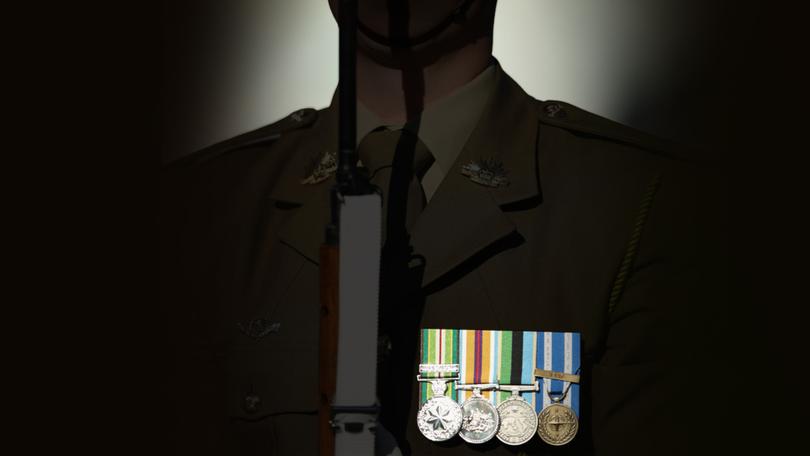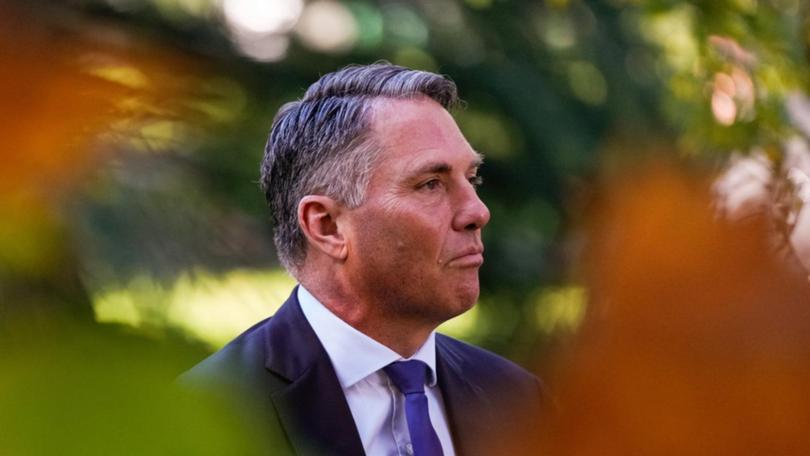Government panned for stripping medals from up to 10 Afghanistan vets in final response to Brereton Inquiry
The defence community is reeling and some have accused the government of ‘spitting at the feet’ of Afghan veterans after stripping medals from up to 10 commanding officers for their role in alleged war crimes.

The defence community is reeling and some have accused the Government of “spitting at the feet of every Afghanistan veteran” after it stripped medals from up to nine commanding officers for their role in alleged war crimes.
Following a four-year inquiry, Major General Paul Brereton found in his 2020 report “credible evidence” that 25 Australian special forces soldiers had been involved in 39 unlawful killings during the 11-year war, and made 143 recommendations.
Defence Minister Richard Marles, in a statement to Parliament on Thursday said all but four - which remain on hold, pending ongoing investigations - had been actioned, and the government could close the book on the Brereton report.
Sign up to The Nightly's newsletters.
Get the first look at the digital newspaper, curated daily stories and breaking headlines delivered to your inbox.
By continuing you agree to our Terms and Privacy Policy.The Government’s final move was to contact a group of up to 15 Afghanistan commanding officers identified by the report - and initially contacted by then-defence chief Angus Campbell last year - to tell less than 10 of them that their medals for distinguished service would be revoked.
Australian Special Air Service Association chairman Martin Hamilton-Smith said Mr Marles’ announcement - just three days after the Royal Commission into Defence and Veteran Suicide handed down its damning final report - could have wide-reaching mental health implications and send shockwaves throughout the community.
“This is an outrageous decision, and the Government should be hanging its head in shame,” he told The Nightly.
“These fine young men, these young officers, are accused of doing nothing wrong. They were courageous and distinguished leaders in battle who are being punished because somewhere in a remote village in Afghanistan, sometime during their watch, it’s alleged someone may have done something wrong.
“To do this, to punish these people before the matters have been taken to a criminal court to establish truth, is wrong.
“Who is Richard Marles to judge these men? There’s more courage and integrity in the little fingernails of these soldiers than any politician. This is spitting at the feet of every young man and woman who served in Afghanistan.”
Major General Brereton’s public report recommended the awarding of decorations to those “in command positions at troops, squadron and task group level” during a number of Special Operations Task Groups rotations be reviewed; and the awarding of decorations to those generally in command positions in the Special Air Service Regiment between 2008 to 2012 also be reviewed.
Major General Brereton found troops, squadron and task group commanders “bear moral command responsibility and accountability for what happened under their command and control”.
He found responsibility did not extend to the most senior leaders, including General Campbell who was commander of the Middle East taskforce in 2011 and earned a Distinguished Service Cross for his tenure.

In his speech to Parliament on Thursday, Mr Marles said he anticipated the decision to revoke honours would be difficult for a small number, but that it should not diminish the service and legacy of the majority of the 26,000 Australians who served in Afghanistan.
“Bar the actions of a few, they undertook their service with professionalism, honour and integrity. They should be proud of their contribution, and we are of them,” he said.
He later explained the medals were not stripped because of the officers’ wrongdoing.
“No one is … suggesting they knew what happened, were aware of it or didn’t act — that’s not the issue,” he told reporters in Canberra.
“But the issue is that when you command a unit, you will receive often the benefits and the accolades of what that unit does irrespective of whether you’ve personally been right there in the front line and commensurately, you accept the responsibility of that unit in terms of what failings occur.
“Had we known what had occurred, would the medals have been granted?”
No Afghanistan veteran has been convicted of a war crime, although whistleblower and former army lawyer David McBride was sentenced in May to almost six years in jail for leaking classified information that exposed alleged war crimes in Afghanistan.
Former SAS trooper Oliver Schulz has been charged with a war crime for allegedly killing a non combatant in 2012.
A civil court last year found decorated veteran Ben Roberts-Smith likely unlawfully killed four Afghans while a SAS corporal, but he has not been criminally charged.
Independent senator Jacqui Lambie, a veteran herself said it was a “real problem” that no officers had been charged over these alleged war crimes.
“We have to hold people accountable — you can’t just throw the diggers under the bus. These guys up here were making decisions, they were making decisions, and if they didn’t know what was going on in the ground, then they should have known,” she said.
Senator Lambie criticised the timing of Mr Marles’ statement, asking why it had been released this week.
One Afghanistan veteran, speaking on the condition of anonymity, said for Mr Marles to make the statement not only days after the royal commission’s report was handed down, but also on September 11 in the US and on “R U OK Day” in Australia was “tone deaf”.
He said questions needed to be asked again about why the most senior officers, including General Campbell, had escaped punishment.
“The broader report could have gone further. It didn’t, and that needs to be looked at,” he said.
“In this scenario, the Government has the ability and the power to go further and look at the command down, and Angus (Campbell), he’s done selection, he knows the culture, he was SF (special forces). He can’t play naïve to this.”
Greens defence spokesman David Shoebridge said it was “particularly galling” that General Campbell had kept his medal, and the lack of accountability among senior leadership sends “the wrong message”.
“Stripping a few low-ranked officers of their medals is not justice and it is not accountability,” he said.
“What Defence has heard is that if you have enough gold braid on your shoulder, then you are untouchable and that is a very dangerous conclusion.”
Shadow defence minister Andrew Hastie told Parliament on Thursday the Brereton inquiry had not covered a broad enough scope to hold those at the top responsible.
“I believe our troops were let down by a lack of moral courage that went up the chain of command all the way to Canberra, including in this place,” he said.
Mr Marles said he had followed the Brereton recommendations “to the letter”.
Mr Marles said while closing the response to Brereton was a milestone, both the government and the defence force remain committed to the “ongoing and enduring” task of reforming the ADF culture.
“Defence is a different organisation to the one that existed at the end of the war in Afghanistan: better positioned to prevent, detect and respond to unlawful, unethical and unacceptable behaviours in the future,” he said.
Mr Marles said while the stain on the reputation of Australia at the hands of a few was not easily removed, it was significant consecutive governments and the defence force had “held itself accountable”.

